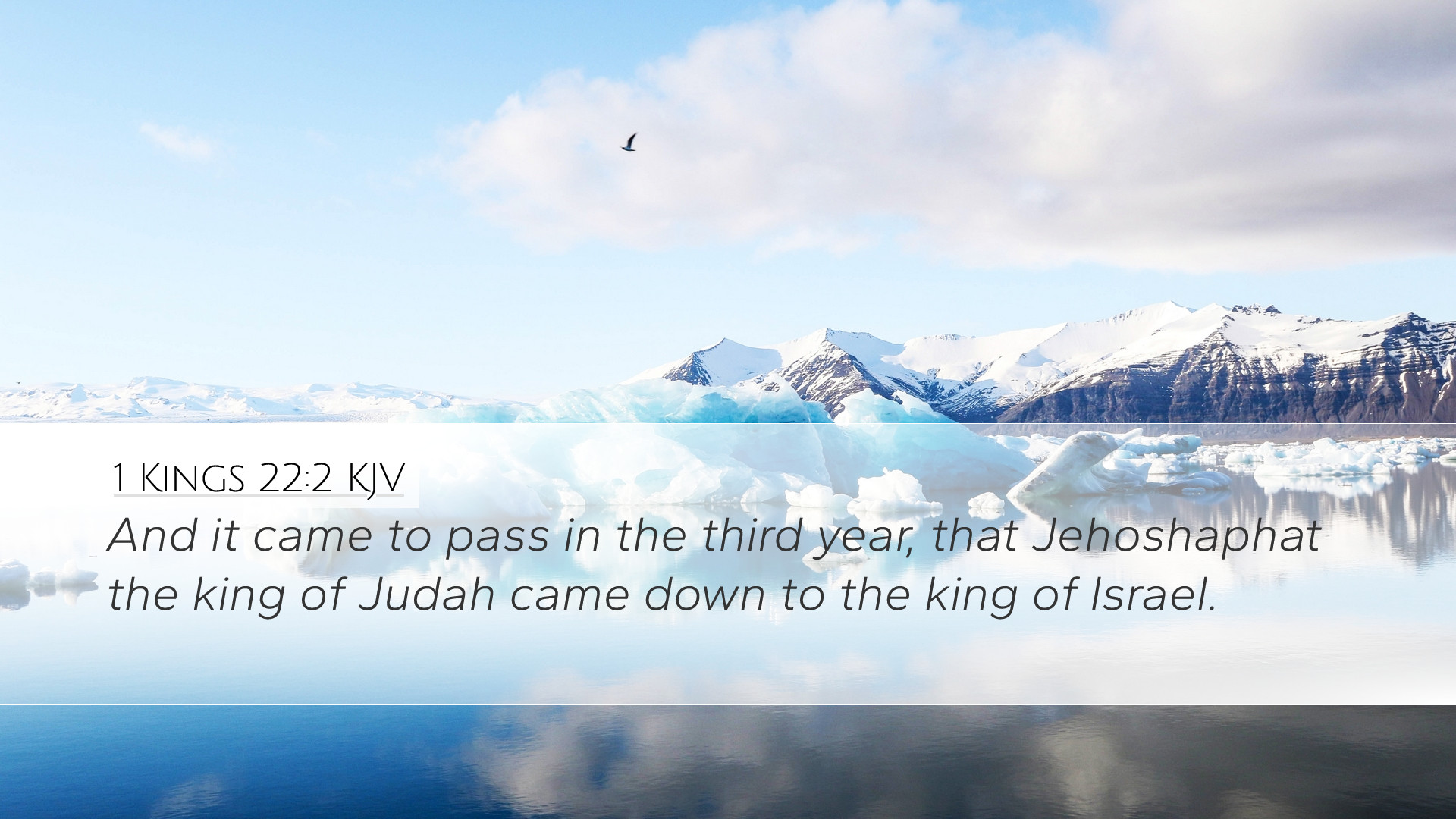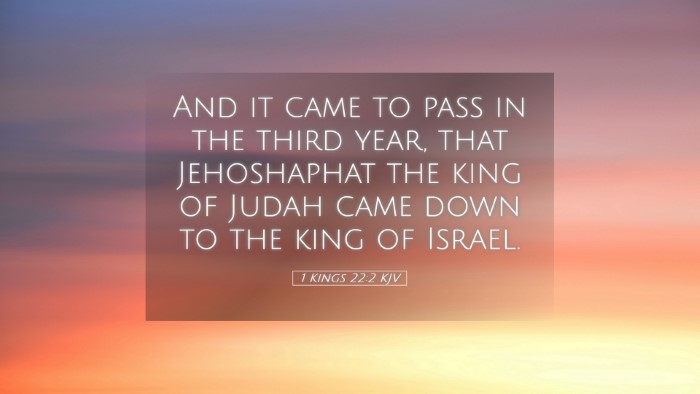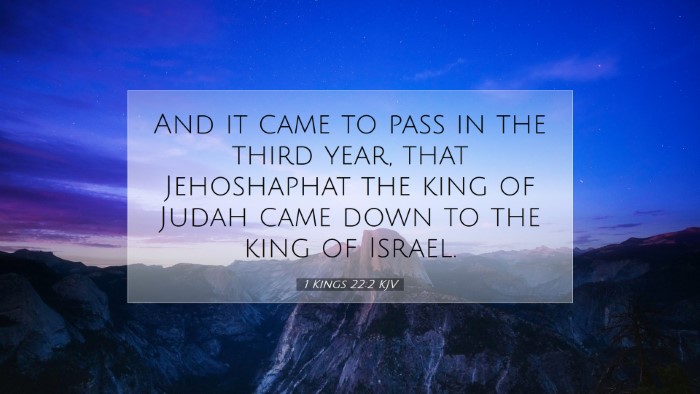Bible Commentary on 1 Kings 22:2
Verse Summary: 1 Kings 22:2 states: "For three years there was no war between Aram and Israel." This verse sets the stage for the conflict that re-emerges in the narrative, highlighting the geopolitical tension and the role of leadership in both the nation of Israel and its enemies.
Contextual Background
The chapter begins by situating us in the reign of King Ahab of Israel, a period marked by tumult and idolatry, particularly due to Ahab's marriage to Jezebel. This backdrop reflects not merely the historical context but also the spiritual climate of Israel—one that had turned away from God and thus faced divine consequences.
Insights from Commentaries
Matthew Henry's Commentary
Matthew Henry emphasizes the significance of the three years of peace as a divine respite for Israel, suggesting that during times of peace, even the most contentious relationships have the potential for reconciliation. He interprets the absence of war as indicative of God's mercy, allowing opportunities for repentance and acknowledgment of His sovereignty.
Henry discusses the implications this peace had on Ahab’s reign, noting that it offered Ahab a chance to reconsider alliances and the direction of his leadership, particularly his relationship with the surrounding nations, including Judah, led by Jehoshaphat. Through these lens, the peace serves both as a divine blessing and potentially a perilous lull before the impending storm of conflict.
Albert Barnes' Notes on the Bible
Albert Barnes brings attention to the political implications of this verse. He notes that the cessation of hostilities was likely due to a combination of factors, including military pragmatism and perhaps divine intervention. Barnes outlines how the geopolitical landscape was one of unstable peace—where both nations were likely in a state of armed vigilance despite the absence of open warfare.
He highlights Ahab’s character, noting that his lengthy reign entailed complex relations not just with Aram, but also with other nations. Barnes cautions against interpreting external peace solely as a sign of internal stability, as in a nation that embraces moral and spiritual decay, the peace can serve as a false sense of security.
Adam Clarke's Commentary
Adam Clarke delves into a more detailed examination of the socio-political environment of the time. He posits that the peace between Aram and Israel was not merely an absence of conflict but may represent an uneasy alliance built upon fear of greater threats. Clarke emphasizes the potential for unrest beneath the surface, arguing that God’s judgment often allows for fleeting peace as prelude to judgment.
Clarke's analysis raises critical questions about leadership and prophetic guidance in a time of relative tranquility. He queries whether Ahab used this time wisely to seek counsel from God or instead continued to ignore spiritual matters, ultimately concluding that the verse foreshadows a return to conflict as a direct result of Ahab's choices reflective of his spiritual state.
Thematic Reflections
- The Role of Divine Sovereignty: The peace described in this verse can be seen as a manifestation of God's providence in human affairs. It reflects His overarching control, which sometimes allows nations to experience rest to prompt reflection and repentance.
- The Nature of Leadership: This passage highlights the burdens of leadership during times of peace and conflict. Ahab’s actions (or inactions) in this period are critical as they shaped the future trajectory of Israel's fate.
- Peace as a Prelude to Conflict: There is a recurring theme in biblical history where periods of peace serve as calm before the storm—a reminder that spiritual apathy in times of peace can lead to dire consequences when God withdraws His protection.
Practical Applications
For pastors, students, and theologians, the passage serves as a poignant reminder to encourage a culture of vigilance in one’s spiritual life and community, particularly during periods of relative tranquility. The cessation of conflict should not lead to complacency but rather to a deeper appreciation of one's dependence on divine guidance.
Moreover, this verse invites believers to reflect on the nature of their alliances, both in personal and communal life. When peace prevails, are we necessarily aligned with God's purposes? Pastors may use this insight to guide their congregations in actively pursuing God's will in each moment, rather than waiting for tumult to prompt action.


